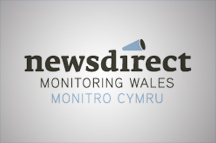 The Welsh Assembly returns for its final term before the summer recess, where mostly uncontroversial legislation will be carried through.
The Welsh Assembly returns for its final term before the summer recess, where mostly uncontroversial legislation will be carried through.
The Environment Bill will start undergoing scrutiny; this Bill finalises a hat trick of legislation from the Natural Resources Minister, Carl Sargeant, having successfully passed the Planning Bill and the Wellbeing of Future Generations Bill. The Minister doesn’t hesitate to point out how important the intersections are between the three bills, although it does apparently need a venn diagram to fully understand… The Environment Bill will have statutory climate change targets in it, which follows much urging from Plaid Cymru. However as it won’t reach its final debate until early 2016 in the run-up to the Assembly election, Plaid may be more critical than usual to show its own priorities for the environment.
The most divisive action will likely be within Welsh Labour itself as the Minister for Public Services, Leighton Andrews, publishes a new map for council reorganisation and mergers in July. Parties tend to agree in principle to the idea, but Councillors are fearful of losing their jobs and local identities and Leighton Andrews’ does not seem fearful of being disliked in his decisions. He has already rejected two voluntary merger proposals and hasn’t yet decided on a clear number of Councils he wishes to see. Again, in the run up to the election, all parties will want Councillors on side to campaign and not speaking out in opposition to the Welsh Government’s plans.

Also in July, the Presiding Officer of the Assembly, Rosemary Butler (the Assembly’s equivalent to Parliament’s Speaker of the House, John Bercow) will respond to a long-running consultation on votes for 16 and 17 year olds, running on Twitter as #Vote16Wales. Most AMs seem in favour but the Secretary of State for Wales, Stephen Crabb, has already said that 2016 would be “too soon” to implement it in time for the Assembly elections. This will likely lead to a great deal of frustration to young campaigners, who will simultaneously be fighting for a vote in the EU referendum.
The referendum is a final point of contention, yet may provide fertile ground for something most of the Welsh parties can agree on. Only a week after the election, all in the Assembly were calling for a cross-party campaign to stay in the EU, firmly placing themselves against UKIP. This may be good election tactics too to position themselves against UKIP, as all polls look to see the anti-EU party taking seats through the Assembly’s regional list system. However the First Minister, Carwyn Jones, has already spoken out against holding the referendum at the same time as the Assembly and Scottish Parliament elections, as it would detract attention away from the very different issues people would be voting on. It would be a very difficult environment for the parties to be campaigning against each other for the Assembly, but with each other for the EU. But due to the likelihood of another minority government or coalition in Wales, maybe working together is something they should get some practice in for.














